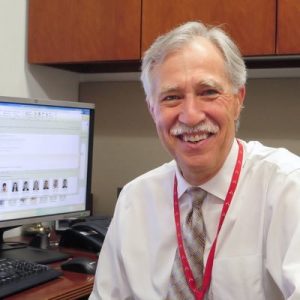Professionalism is a critical component of both undergraduate and graduate medical education. Continual assessment of professionalism is necessary for mastery of this competency and to help learners understand and ultimately develop skills to avoid professionalism lapses. Individual behavior and attitudes are often affected by the overall work and learning environments and role modeling by attending physicians and peer pressure from colleagues can contribute to both positive and unprofessional behaviors. This engaging webinar will provide grounding in the current state of professionalism assessment, insights on the obstacles and strategies for assessing professionalism.
New Tools and Paradigms for Assessing Professionalism in the Health Sciences
Seminar Downloads
 For the past 32 years I have had the privilege of working in multiple areas of pediatrics and pediatric nephrology. After my clinical and research training at the University of Minnesota, I began in the tenure track in basic science at the Ohio State University (OSU) and Nationwide Children’s Hospital (NCH) in 1984. In 1990 I was appointed and still serve as Program Director of the NCH General Pediatric Residency Program and in 2003 I started and still direct the NCH Pediatric Nephrology Fellowship Program. I served as Director of the OSU College of Medicine (COM) Center for Education and Scholarship from 2009-2012 and now serve as Assistant Director of Faculty Development in the COM (since 2010). I have led the OSU Professionalism Council Educators Working Group since 2009 and am responsible for the evaluation and ongoing improvement of professionalism education as Director of Competence for Professionalism in the COM. We have recently developed the OSU Professionalism Climate Questionnaire to define the environment so critical for developing professionalism skills in medical education learners and promoting resilience in physicians.
For the past 32 years I have had the privilege of working in multiple areas of pediatrics and pediatric nephrology. After my clinical and research training at the University of Minnesota, I began in the tenure track in basic science at the Ohio State University (OSU) and Nationwide Children’s Hospital (NCH) in 1984. In 1990 I was appointed and still serve as Program Director of the NCH General Pediatric Residency Program and in 2003 I started and still direct the NCH Pediatric Nephrology Fellowship Program. I served as Director of the OSU College of Medicine (COM) Center for Education and Scholarship from 2009-2012 and now serve as Assistant Director of Faculty Development in the COM (since 2010). I have led the OSU Professionalism Council Educators Working Group since 2009 and am responsible for the evaluation and ongoing improvement of professionalism education as Director of Competence for Professionalism in the COM. We have recently developed the OSU Professionalism Climate Questionnaire to define the environment so critical for developing professionalism skills in medical education learners and promoting resilience in physicians.